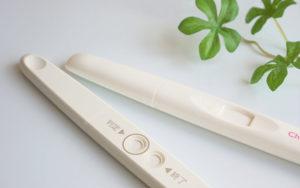Summary of this article
Early pregnancy symptoms vary from person to person, with different physical changes and symptoms. Early pregnancy symptoms are sometimes similar to PMS (pre-menstrual syndrome) or the onset of a cold and are difficult to determine. Common early pregnancy symptoms include feeling sick at certain smells, a slight fever, an upset stomach, a feeling of heaviness in the lower back, changes in fabrics and morning sickness. The hormones produced during pregnancy play a major role in the physical changes caused by pregnancy.
- Early pregnancy symptoms and physical changes
- Common early pregnancy symptoms
- Statistics on early pregnancy symptoms
- Slight fever
- Morning sickness
- Breast/nipple discomfort
- Changes in haemorrhage
- Vaginal diseases
- Venereal diseases
- Elimination problems during pregnancy
- What is joint pain in early pregnancy?
- Early pregnancy bleeding and risk of miscarriage
- Early knowledge of miscarriage risk with NIPT
Early pregnancy symptoms and physical changes
Early pregnancy symptoms vary from person to person, with different physical changes and symptoms.Early pregnancy symptoms are sometimes similar to PMS (pre-menstrual syndrome) or the onset of a cold and are difficult to determine. However, if you are hoping to become pregnant, unusual physical changes may raise your hopes that you may be pregnant.
The following are common symptoms of early pregnancy (up to 13 weeks 6 days) and physical changes seen in many pregnant women.
Common early pregnancy symptoms
- Feeling sickened by certain smells
- Have a stomach ache
- Feel heavy on the back
- Frequent urination
- Suffer from constipation
In addition to common early pregnancy symptoms, the following are some statistics on early pregnancy symptoms experienced by many pregnant women
Statistics on early pregnancy symptoms
1st Slight fever (high temperature) 32.1% 2nd Smell ruined 27.8% 3rd Drowsiness 26.7% 4th Stomach pain/heartburn 23.5% 5th Discomfort in the breast/nipple 22.7% 6th Symptoms like a cold 15.5% 7th Secretions have changed 13.6% 8th Unstable, like pre-menstrual period (PMS) 9.4% 9th Abdominal pain 8.6% 10th Lumbago 7.8% 11th Constipation/diarrhoea 7.5% 12th Frequent urination 6.4% 13th More saliva 2.1% 14th Others 15% References: Nikkan Kogyo Shimbun [Baby’s Room Research], August 2018, General Research
The hormones produced during pregnancy play a major role in the changes in physical condition due to pregnancy. Many pregnant women also experience the following changes in their physical condition during each week of pregnancy.
Slight fever
Body temperature is divided into two phases: a low temperature phase before ovulation day and a high temperature phase after ovulation day. If you become pregnant, your body temperature will remain high even after your expected menstrual period, and you may experience symptoms such as ‘slight fever, drowsiness and cold-like symptoms’.
Keeping a basal body temperature before pregnancy makes it easier to tell whether you are pregnant or PMS, so keep a basal body temperature chart and check your body temperature on a daily basis.
Morning sickness
Morning sickness has no clear medical cause, despite being experienced by many pregnant women. It is thought to be caused by autonomic nervous system disturbances and changes in the body’s internal environment due to pregnancy. As the symptoms vary greatly from person to person, care must be taken to avoid serious illnesses such as dehydration and weight loss.
Morning sickness is generally said to subside by the 12th week of pregnancy, but the following are statistics on the duration of morning sickness for those who have actually experienced it.
Duration of morning sickness
4-5 weeks’ gestation 6.8% 6-7 weeks’ gestation 9.9% 7-8 weeks’ gestation 9.9% 8-9 weeks’ gestation 13.3% 9-10 weeks’ gestation 11.3% 10-11 weeks’ gestation 9.6% 11-12 weeks’ gestation 10.2% More than 12 weeks gestation 29.0% References:Nikkan Kogyo Shimbun [Baby’s Room Research], August 2018, General Research
Many pregnant women find that morning sickness interferes with their daily life. Apart from nausea and vomiting, stomach pain, heartburn and excessive saliva are also symptoms of morning sickness. If morning sickness causes dehydration or weight loss, consult a doctor.
Breast/nipple discomfort
Pregnancy increases the production of female hormones, which can cause symptoms such as ‘breast tenderness, enlargement and sore nipples’.
In addition
- Nipples turn black
- Small bumps on the areola
- Blood vessels in the chest stand out
These symptoms occur in many pregnant women and are not a disease. In addition, darkening of the nipples and other symptoms will settle back to normal after a short time after delivery. Breasts increase in size by one to three cups, so choose underwear that is gentle to the touch and not constrictive.
Changes in haemorrhage
Pregnancy increases the production of female hormones and it is not uncommon to notice changes in the quantity and condition of discharge. As with morning sickness, discharge in early pregnancy can vary from person to person, but common symptoms include
| Smell | Fishy and sour odour |
|---|---|
| Status | Watery/tender shape like the white of an egg |
| Amount | No change or increase in the amount of discharge after the expected menstrual period, compared with the amount of discharge before the expected menstrual period |
The smell and condition of discharge varies from person to person, but the amount of discharge usually decreases before menstruation. If there is an increase in the amount of discharge, it is possible that you are pregnant and should be tested with a pregnancy test.
In addition to pregnancy, vaginal illness and sexually transmitted diseases can also cause changes in the condition of the discharge. Observe your own discharge on a regular basis and seek medical attention as soon as possible if there are any abnormalities in its colour, quantity or odour.
Vaginal diseases
| Bacterial vaginal layer | Genital candidiasis | |
|---|---|---|
| Smell | Degenerate (of a monk) | None |
| Status | Greyish white | White cheesy |
| Itching in the vulva | No | Yes |
Venereal diseases
| Chlamydia | Herpes | Syphilis | Gonorrhoea | Trichomonas | |
|---|---|---|---|---|---|
| Status | Highly water soluble | - | - | Yellow | Bubbly and yellow |
| Pubic symptoms | - | Blister | Hard lump | Pain during urination | Severe itching |
Elimination problems during pregnancy
Constipation, diarrhoea, abdominal pain, frequent urination and other excretory symptoms are common during pregnancy. Although they vary from person to person, they are mainly caused by the following factors
| Reasons | |
|---|---|
| Constipation |
Hormones during pregnancy cause muscles to relax and bowel movements to decrease. ※As the baby grows, constipation can also occur due to pressure on the bowels. |
| Diarrhoea |
①Due to hormonal disruption of the autonomic nervous system. ②Because of morning sickness and the consumption of a lot of cold food and drinks. ③Side effects from stress and iron pills. ※Iron tablets are prescribed to improve anaemia in late pregnancy. |
| Frequent urination |
①Because the kidneys work more vigorously and urine output increases. ②Because the uterus is enlarged and the bladder is compressed. ③Because of the hormones released during pregnancy, the bladder muscles also relax. |
Pregnancy-induced constipation and diarrhoea are considered to have little effect on the baby. However, if symptoms such as unusual abdominal pain or diarrhoea that causes dehydration appear, immediate medical attention is required.
What is joint pain in early pregnancy?
During pregnancy, the muscles relax due to female hormones. This phenomenon occurs to prevent uterine contractions, but human joints are protected by muscles. The relaxation of the muscles around the joints therefore places a load on the joints and causes joint pain.
Apart from the effects of female hormones, there is also pain caused by hip bone compression due to an enlarged uterus and joint pain caused by weight gain.
Joint pain in early and late pregnancy is considered a common pregnancy symptom. However, if a high fever is present along with joint pain, pyelonephritis is suspected and should be seen immediately.
Early pregnancy bleeding and risk of miscarriage
Many pregnant women experience bleeding in early pregnancy. Bleeding in early pregnancy is believed to be caused by damage to capillaries in the endometrium. However, this bleeding rarely leads directly to miscarriage, and the probability of miscarriage is the same when pregnant women who bleed in early pregnancy are compared with those who do not bleed.
The cause of miscarriage in early pregnancy is considered to be a chromosomal abnormality in the foetus. And modern medical technology has not established a cure for miscarriages caused by chromosomal abnormalities.
However, chromosomal abnormalities, which are one of the causes of miscarriage, can be examined at 10 weeks and 0 day of pregnancy by NIPT. (At Hiro Clinic, testing is possible after the heartbeat has been confirmed)
Early knowledge of miscarriage risk with NIPT
NIPT can be performed using only the pregnant woman’s blood. The probability of congenital disease risk due to chromosomal abnormalities in the foetus can be examined using the same blood sampling method as for medical examinations. NIPT by Hiro Clinic NIPT is available from 9 weeks and 0 day of pregnancy, regardless of the age of the pregnant woman.
The NIPT specimen testing at Hiro Clinic NIPT is carried out in Japan. Barcodes are controlled at the same time as blood samples are taken, so human error, such as specimen mix-ups, is extremely rare. In addition, 95% of Hiro Clinic NIPT test results are delivered within 8 days(※excluding some plans)after the blood sample is taken, as the specimens are tested in Japan.
In addition, an express delivery option is available at all Hiro Clinic clinics (minimum delivery time of 2 days from blood collection), except for the collaborating facilities.
Knowing the risk of miscarriage due to chromosomal abnormalities in the early stages of pregnancy is very important for a healthier pregnancy.
Pregnant women who want to know the health status of their unborn child at an early stage or want to know more about NIPT, please visit Hiro Clinic NIPT for a consultation.
References
- Navigating a women-friendly workplace – Physical changes during pregnancy and points to consider
- Japanese Society for Sexually Transmitted Diseases – Bacterial vaginosis
- Japan Society of Obstetricians and Gynaecologists – Q&A What about sexually transmitted infections?
- Ministry of Health, Labour and Welfare – Study group on specific treatment support services for those suffering from infertility, etc.
Article Editorial Supervisor

Dr Hiroshi Oka
NIPT specialist clinic, MD
Graduated from Keio University, School of Medicine
 中文
中文






















